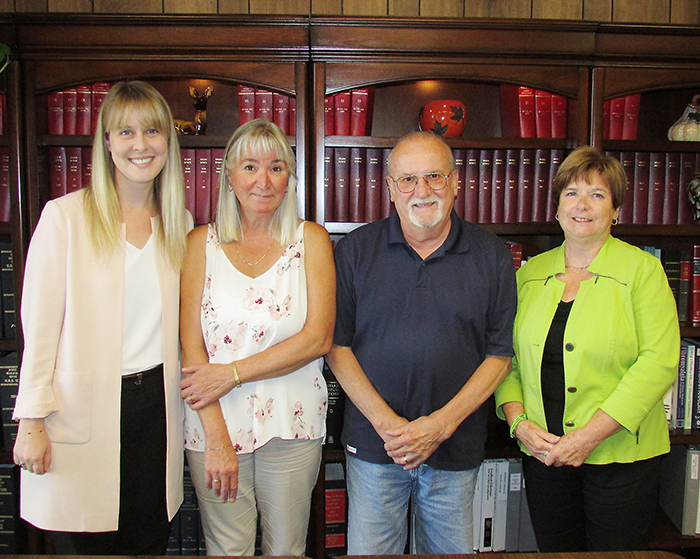
The Chatham-Kent Legal Clinic is expanding its services to low-income residents to include employment law issues.
Employment lawyer Melinda Robertson has joined the clinic legal team locally to help low-income individuals with work-related problems, as well as other issues. From London, Robertson did her undergraduate degree at the University of Guelph and attended law school in Windsor.
“Employment law is a new initiative as of January 2017, so I think people might not even know it is here, or an option,” Robertson said. “The Mobile Legal and Social Justice Initiative started the idea to have three lawyers providing employment law legal services throughout Southwestern Ontario, so I provide services in Chatham, Sarnia and St. Thomas.”
Available to people who qualify as low-income, the new service is for people who aren’t members of a union.
“We help people who have been dismissed from their employment, either for cause, or been terminated and haven’t done anything wrong, but for whatever reason have been terminated – shortage of work, restructuring – could be anything. We help people recover compensation in those areas from their employer in the way of termination pay, or if they didn’t get any notice or pay,” Robertson explained.
“It’s regarding dismissal mostly. I get so many people who come to me and say, ‘I’ve been fired and I didn’t get any termination pay, what can I do?’ and there are different options. You can try to resolve it with an employer before filing anything. If that doesn’t work, we can help them file an application with the Ministry of Labour, and if that is not the best choice, we can go to Small Claims Court and represent them there if they qualify,” Robertson noted.
She said that is one aspect of employment law but another element is if someone has been dismissed or harassed for what seems to be a discriminatory reason, such as a disability that needs to be accommodated, or other protected grounds, they can ask questions about what is legal or illegal.
“That’s human rights at work. If you have been harassed or discriminated against under a protected ground, we can help file a petition with Ontario Human Rights Tribunal,” she added. “We also can help with reprisal or punishment scenarios. For instance, if you’ve raised health and safety issues at work, or asked your employer to comply with the law, and you receive some kind of punishment for it, or you’re let go, we might be able to help them with that scenario as well.”
While employment law is new to the clinic, it has been helping people with many legal issues since it opened in February, 1981.
“The clinic has a number of different services. We work with ODSP, Ontario Works, Canada Pension plan appeals so if someone has applied and been declined, the clinic might be able to assist them with appealing it. We also will give some assistance by advice to some landlord and tenant issues, only for tenants. We help people with criminal injuries compensation award applications. If someone has been the victim of a crime, they may be able to make an application for some compensation and we can assist people with that,” Robertson said. “We assist people with wills and powers of attorney as well.”
All of these services or advice over the phone are free of charge.
“If we have a file representing a person, there are some costs we might incur along the way, like for medical reports and we seek some compensation but there are no legal fees or retainers.
“We try to help people in those areas if we can, and in my work with employment law, if someone doesn’t qualify financially for services – we have financial guidelines to qualify for representation – I still will talk to them over the phone briefly to give them advice, summary advice and if appropriate, give them a referral to get some assistance. It is a clinic that provides services for low income people but we can still talk to someone if you have one those issues and may be able to give you some suggestions.”
The clinic is not available to help with criminal, family or property law, or Worker Safety and Insurance Board (WSIB) issues, however. The Chatham-Kent Legal Clinic is one of 77 community legal clinics funded by Legal Aid Ontario and administered by a board of directors.
The legal clinic is located at 6 Harvey St. in Chatham and the phone number is 519-351-6771. The office hours are Monday–Thursday, 9 a.m. to noon and Monday to Friday, 1 p.m. to 4:30 p.m.






